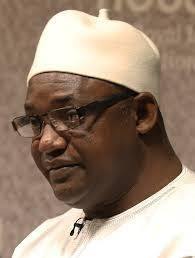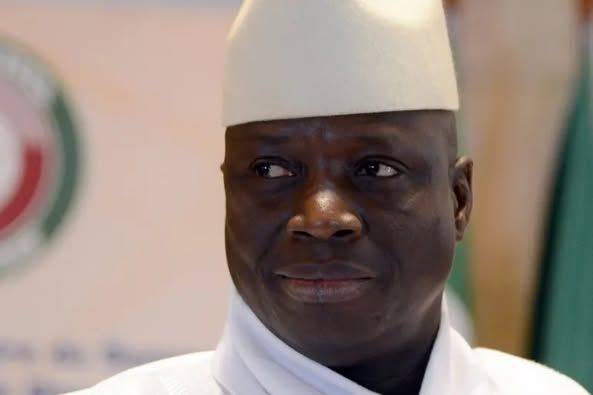
Alagi Yorro Jallow;
Part VII
Fatoumatta: As The Gambia celebrates its 60th year of independence, the nation stands at a pivotal crossroads, reflecting on its past while envisioning its future. From the momentous occasion of February 18, 1965, when the nation first embraced freedom, to the present day, this journey has been marked by both remarkable achievements and significant challenges. However, as we honor this milestone, we must confront a critical question: Is it genuinely worth celebrating? This write- up explores the complexities of The Gambia’s path to independence, illuminating the triumphs and tribulations that have shaped our nation.
The road to independence for The Gambia is dotted with significant events and influential figures. Visionary leaders such as Sir Dawda Kairaba Jawara played an instrumental role in guiding the country toward self-governance. Yet, this journey has not come without its hardships. Notable voices, like Edward Francis Small, resonated the deep-seated desire of many Gambians for true liberation—both politically and economically. The transition from a constitutional monarchy to a presidential republic in 1970 was a watershed moment in our history. However, a crucial question lingers: Has The Gambia realized the economic freedom that accompanied its political independence? This article delves into the socio-economic struggles that have persisted over the decades, underscoring the urgent need for a renewed commitment to development and unity. Personal stories and historical context can enhance this narrative. For example, reminiscing about the thrill of schoolchildren rehearsing for Independence Day celebrations evokes a powerful sense of nostalgia and national pride. Additionally, reflecting on the current landscape—including the implications of political shifts and the ongoing quest for genuine liberation—adds nuance and urgency to our story.

The first generation of Gambian leaders fought passionately to enshrine February 18, 1965, as our Independence Day. Initially, The Gambia existed as a constitutional monarchy, still under the auspices of the British Commonwealth and its Queen. However, everything changed in 1970 when the nation proclaimed itself a presidential republic, casting aside the Queen and abolishing the position of Governor-General. Sir Dawda Kairaba Jawara emerged as our first leader, serving as Prime Minister from 1962 to 1970 before embarking on a presidential tenure that lasted until 1994. In a disconcerting trend, some commentators on social media, political scientists, and even politicians have diminished the significance of February 18 in public discourse, arguing there is little worth celebrating on this day. They suggest we focus instead on April 24, 1970—a date marking the moment when ordinary Gambians achieved true sovereign republican status. This date symbolizes the dawn of our political self-discovery; it was the day we were entrusted with our destiny, free from colonial rule, as we adopted the 1970 Constitution and rejected the British Queen as our head of state. For countless Gambians, this was akin to shedding the chains of oppression and experiencing life anew, bursting forth like a freed prisoner drawing in their first breath of freedom.
The anticipation and aspirations among the Gambian people were immense, reflecting a nation’s dreams and hopes that had long been confined. Can you truly appreciate the profound significance of April 24, 1970, in our nation’s history? Or will you allow February 18, often overshadowed by our republic’s recognition, to be remembered as just another date? It’s time we reflect on the full scope of our journey and allow all critical milestones to shape our national identity.

Fatoumatta: If there are issues of togetherness, February 18, 1965, marked a pivotal moment in The Gambia’s quest for self-rule. This journey was ignited by Edward Francis Small’s powerful cry of “Taxation without Representation.” The “Bread and Butter” demonstrations, along with strikes and hunger protests against the meager wages of a penny a day, unmasked the urgent need for change. What a horror! How inhumane! The call for freedom could not wait—not even for a moment more. As a consequence, the British reluctantly arranged for independence, yet the process was fraught with complications. On one side of the negotiating table were the colonizers, and on the other, the freedom fighters. The colonizers insisted that pre-independence and post-independence conditions should remain unchanged, with no alterations to the status quo. Conversely, the freedom fighters demanded political freedom first, believing that once achieved, economic freedom would naturally follow. It appeared that both sides agreed to pursue a common goal, one that would ultimately satisfy everyone involved in the negotiations. Their meetings, whether in London or elsewhere, reinforced a troubling consensus: pre- and post-independence would remain the same, and the focus should be solely on political freedom. The ruling elites on both sides found solace in this arrangement, but the true needs of the Gambian people were disregarded.
Thus, in February 1965, a flag was unfurled, a national anthem was composed, and a nation was born—yet the colonial powers lingered, leaving Gambians to wait for promised benefits to accompany their newfound political freedom. What were these promised benefits? Employment opportunities, timely salaries, access to food and clean water, safe housing, developed infrastructure, schools, hospitals, qualified teachers, nurses, and doctors. But who would deliver these essential needs? The departing colonial powers? If they could provide these benefits, why did they not do so before independence? Could we expect them to step in now? No, it was far too late for that. The burden rested squarely on our leaders, the architects of liberation, to ensure these necessities were realized now that we had supposedly achieved freedom. Yet, do the colonial powers not owe us reparations? Can we not demand justice for the past? Our current leaders do not seem to suffer from these legacies; in fact, they often mirror the colonial powers—overweight, comfortable, and detached, embodying the very traits they once sought to overthrow. They have become the reincarnation of the colonizers!
As The Gambia celebrated its independence in February 1965, it remained shackled by self-delusion under a leadership without a clear agenda to transcend the limitations of political and economic freedom, ethnic diversity, and religious pluralism. Unbeknownst to us, colonial rulers had fostered an internal structure that perpetuated the very colonial mentality that damaged our cultural identity and exacerbated the divisions that should have been our sources of pride and uniqueness. Almost immediately after the first government assumed power without true self-rule, the signs of this self-delusion became glaringly evident, culminating in the betrayal and dismantling of the very nationalists who had fought valiantly for independence. Instead of progressing forward, Gambians found themselves regressing, trapped in a cycle of hopelessness and helplessness. This period was defined by a small, elitist faction, remnants of colonialism, who continued to dominate the Gambian political landscape with blatant disregard for the masses. It became a rule of power devoid of authority—a regime that served only the few, while imposing its will and leaving no room for dissent. In this dark era, The Gambia was battered and shattered, and the ripple effects of this tumultuous time can still be felt today, even in our nascent democratic republic. It is time to confront this painful legacy and demand a future that honors the sacrifices of our past while striving for a truly inclusive and equitable society.
Reflections on Gambia’s Republican Day: An Invitation for Transformation.
Fatoumatta: February 18, 1965, marks a pivotal moment in Gambia’s history, as the nation decided to celebrate its Republican Day on this date, diverging from the more universally positive April 24. This choice invites us to reflect deeply on what such a date signifies. Does February 18 hold the weight we ascribe to it? Are we satisfied with the legacy it carries? Reflecting on the intentions of Sir Dawda Kairaba Jawara and his administration at that time, I find myself curious about the significance they attributed to this date for both Gambians and our former British rulers, especially in light of its implications for national unity.
Over the years, our politicians and policymakers have overlooked April 24, urging Gambians to stay indoors as if we were grappling with a national crisis. Did this decision to forgo celebration deprive our children of cherished memories surrounding April 24? In our earlier days, the spirit of February 18 filled us with excitement and pride. We prepared for parades, representing our schools proudly at the main events, embracing a shared celebration of our nation’s hope and aspirations. February 18 was more than a date; it symbolized our freedom and unity, evoking memories of brave leaders who fought for a future free from colonial rule.
Today, however, the essence of February 18 seems to have faded. The paralysis of the Yahya Jammeh regime has cast a shadow over what was once a vibrant celebration. The government’s activities on this day, now reduced to a Guard of Honor, seem confined to the Statehouse, accessible only to a select few with influence. This has created an unfortunate divide, turning a day meant for all Gambians into an exclusive event for the elite, and leaving many questioning the true spirit of our national identity. So, what is happening in the Gambia? Our values appear to be in flux, and we seem willing to redefine what beauty and meaning in our history entail. This decline is evident in our tourism of Independence Day, where positive memories are overshadowed by a bleak narrative. As Ghanaian author Ayi Kwei Armah poignantly remarked, “The desert takes, it does not give.” We must confront the reality that we cannot build a thriving future on the remnants of neglect and unfulfilled potential. If our hearts truly embrace the spirit of Gambia, we must reexamine our attitudes towards February 18 and what it represents. We cannot allow this disheartening chapter to persist. Our struggle for independence was to reclaim our power, not to empower new tyrants at home.
Fatoumatta: On July 22, 1994, a group of ambitious young soldiers promised a new dawn of freedom, growth, and the end of corruption. We were led to believe that a new era would honor the sacrifices made in pursuit of genuine liberty. Yet, decades later, leaders have often prioritized their interests over the collective good. While our nation is rich with resources, what has been lacking is authentic leadership, one that empowers the people rather than exploiting them. It is essential that we advocate for this current generation of leaders to stand back and allow Gambia to reclaim its autonomy. The people of Gambia possess boundless potential to foster their own progress. Let us create space for genuine growth—it’s time for a change. **Conclusion:** As we celebrate the 60th anniversary of Gambia’s independence, let’s not just look at what we’ve accomplished, but also honestly confront the areas ripe for renewal and growth. Our journey has been filled with trials, yet its end is not in sight. By acknowledging our past and envisioning a brighter future, we can advance toward a nation that reflects the ideals of freedom, unity, and prosperity. Let this remarkable milestone be a testament to the resilience and strength of the Gambian spirit, inspiring a collective call to action for continued growth and development. Together, let’s strive for a vibrant future that honors our past and embraces the possibilities ahead.

